Movie Title: 4 luni, 3 săptămâni și 2 zile (4 months, 3 weeks and 2 days), 2007
Directed by: Cristian Mungiu
Starring: Adi Cărăuleanu
Luminița Gheorghiu
Mădălina Ghițescu
Vlad Ivanov
Anamaria Marinca
Alexandru Potocean
Laura Vasiliu
1987. Romania. A bleak winter’s day. The movie begins with a scene of two fish swimming in a tank in a dorm room.
The story happened in a single day. Otilia, a female college student, was buying smuggled imported cigarettes, food and soap and packing bags secretly for Gabriela, another female college student who shared her dorm room. Gabriela was pregnant unexpectedly and abandoned by her boyfriend. While abortion was illegal at that time in Romania, the two girls found a barefoot doctor called Mr. Bebe to plan a secret abortion. And that is when the nightmare started.
The hotel room booked by telephone by the timid Gabriela had not been reconfirmed and hence was not reserved. Hence Otilia had to spend more money to find another hotel and negotiated with the receptionist to book another room.
When the girls met Mr. Bebe, the doctor was very angry. Gabriela did not meet neither the two conditions he set.
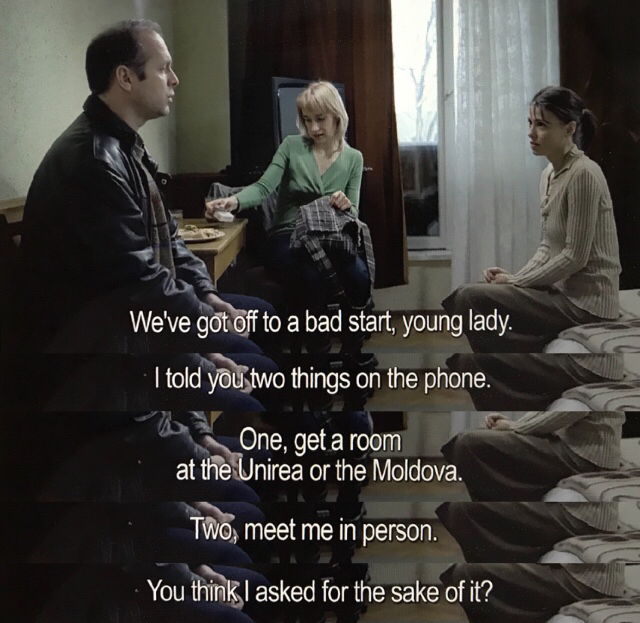
Things became worse when Mr. Bebe found Gabriela lied about the time of her pregnancy, as the procedure of abortion is different for the third or the fourth month.
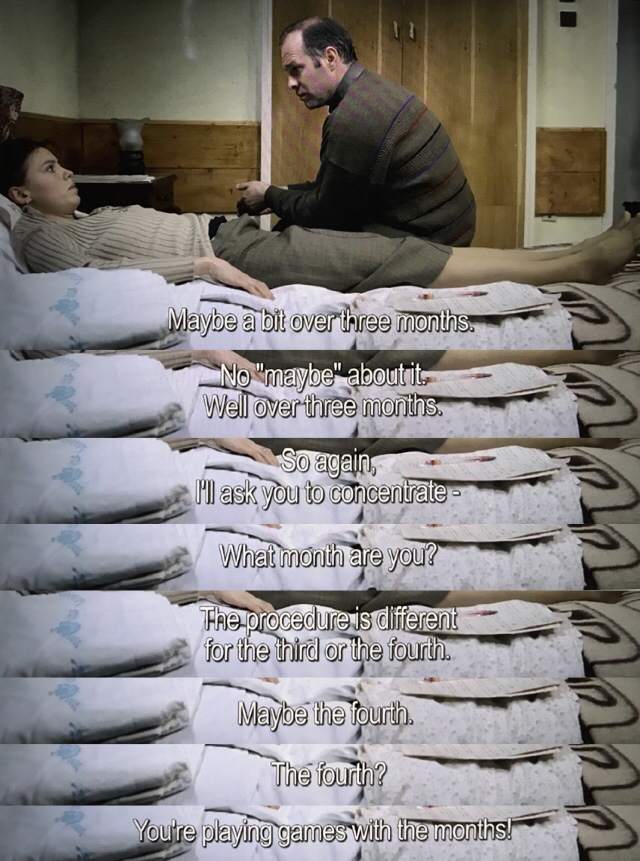
In the hotel room, Mr. Bebe, Otilia and Gabriela began bargaining. However, the helpless girls were under Mr. Bebe’s shameless intimidation and could only sell their bodies to pay for the dangerous abortion.
Since had promised her boyfriend, Otilia went straight way to her boyfriend’s mother’ birthday party after the operation even she just experienced a painful and shocked time. After witnessed Gabriela’s tragedy, she could not help asking her boyfriend:
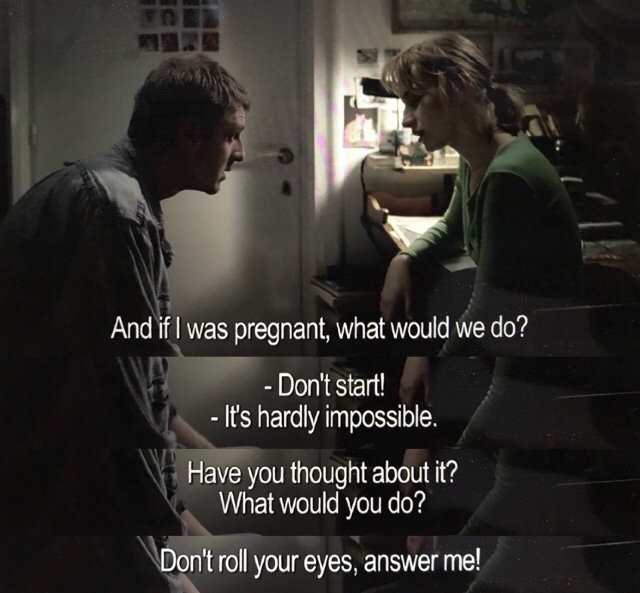
The answer was not satisfactory. Otilia clearly knew that even if her boyfriend wanted to marry her, his family which was concerned with fame and honour would not agree. If she got pregnant, she would only, and certainly, repeat Gabriela’s story, and Gabriela would be the only one who could help her. So she left the party, ran all the way back to the hotel to help her friend.
The foetus had come out and the shot gazed at the little baby. It is a fidgety scene; the compelled loss of life in the deformed society contains too much helplessness and sadness, while it is the reality that no one could choose to escape from.
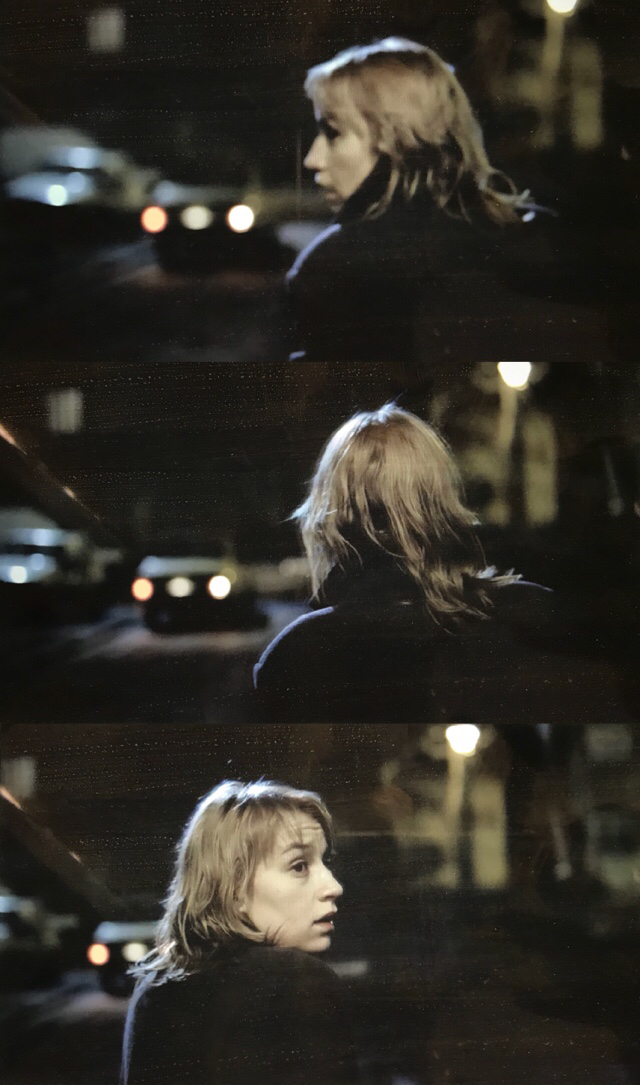
Then there was the scene of Otilia running nervously down the dark street with the foetus. She had to hide from the police, the dogs, the homeless – all the possibilities to bury her hard-won freedom – until she finally threw the body into the trash can as Mr. Bebe asked.
Back at the hotel, Gabriela had come out of the room, sitting in front of a dining table and reading a menu, where a wedding was being held. Otilia came back and joined her. They did not show any remorse or introspection, and they even refused to mention the humiliation of the day in any way. In the background there was a huge glass window. In front of the glass, the girls were like two fish in the tank. They could not break out of this era.
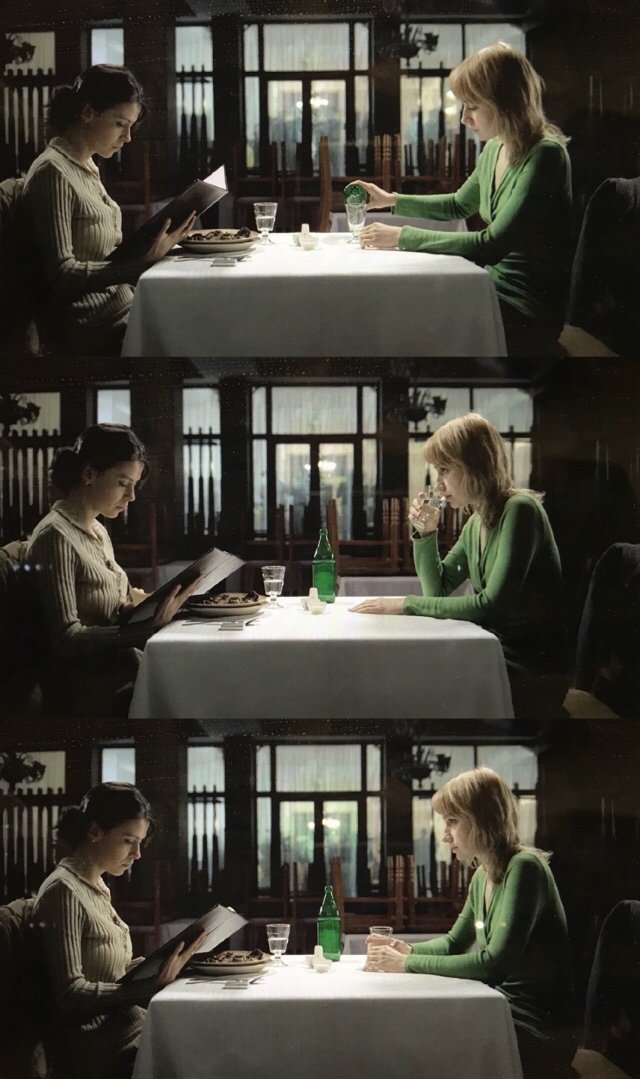
On that day, Gabita terminated her 4 months, 3 weeks and 2 days long pregnancy.
This movie revolves around an abortion. But in fact, it is more than an abortion; behind it, the reflections of life and survival are more touching. A fundamental right has been lost since contraception and abortion were unequivocally prohibited by Nicolae Ceausescu’s regime in Romania in 1966. By 1989, half a million Romanian women had died from private abortions. During that period in Romanian history, abortion was not only about some wrong and evil moral act, but also about the betrayal and confrontation of the national system. On the one hand, people could not get away from their human nature; on the other hand, they anguished over the bitter pills that they planned and had to swallow. Just like Gabriela, who struggled in the bitterness of premarital pregnancy and dragged her roommate down into the troubles. The prohibition of abortion, which came from the hope of cherishing and caring for life, has become a mouthpiece of killing human nature. In the so-called prejudice of strength in numbers, it has played tragedy scene after scene. Gabriela is weak and coward, Otilia is brave and strong; however, both of them ultimately yielded to the powerlessness to fate. In that patriarchal society, women are like puppets, and all the efforts they make cannot escape from the prejudice to fate. Mr. Bebe, for example, is a very epitome of the patriarchal society. Before heading to the hotel, he showed care and love to his mom; while when in the hotel room, his behaviours totally changed. Not only did he boss around the two troubled girls, but also intimidated them and coerced them into to trading sex. His ugliness was further revealed when he gently and kindly reminding the two girls of what to be careful after the abortion. It seems that nothing happened, and he was an aboveboard saviour. The two sides of human nature are reflected so incisively and vividly here. That special time has just created the best breeding ground for evil.
The movies also sketched how ordinary people, in this special era, became evil and started to abuse the power they have. The black market became common to see, people got familiar with the bureaucratic service of the state-run hotels and the depressed appearance of the cities in Romanian in 1987, where material deficiency, human indifference and the supply system still existed. The pursuit of freedom has become an unattainable luxury, and even a trap leading to crime.
After the Romanian Revolution in 1989, winter came as usual. For the Romanians, nothing seems more satisfying than the sunshine escaped out from the cold fog of winter. The movie kind of follows a documentary type style, which brings the audience a sense of realism and reminds us of the dictatorship and patriarchal society in Romania back in 1987. As global citizens, we must also be aware that similar conditions still exist in some regions in the world today. The history is not only thought-provoking for Romania, but also for the world, to think about political and social systems, to think about human rights.